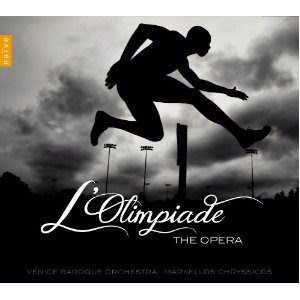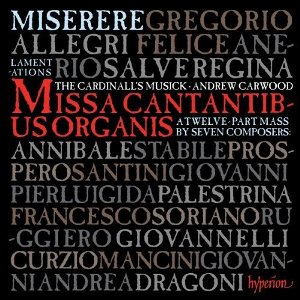CD Review: Vivaldi et al: L'Olimpiade
Originally written for musicalcriticism.com
7th June 2012
-->
7th June 2012
-->
As the 2012 Olympics
approach, London is bedecked with nationalist symbolism not only for the games
but for the Queen’s Diamond Jubilee which would appear to have provoked us, as
a nation, to rejoice in a nostalgic revisiting of 1950s taste. Whereas
coronation favourites such as teacakes and sponge cake have not changed
significantly with the passage of time, Baroque music is in a quite, quite
different position from the way it was heard in the 1950s. The sea-change in
performance practice, and ergo listening experience, was so passionately
wrested from the hands of modern ensembles and the results of the new breed of
skilled period instrumentalists so convincing that only now with an appropriate
distance do we realise the extent to which things have changed. Modern
ensembles such as the Venice Baroque Orchestra play with a fluidity and grace
that was would have been unimaginable in the middle of the last century and
their singers seem to have found a confident style that marries passion and
clarity.
This new release is
part of a growing number of high quality baroque recordings that reflect the
bewildering volume of eighteenth century music that has not previously made it
into modern performance, and projects like the Vivaldi programme, spearheaded
by naïve - with their distinctive packaging and ear for sprightly, energetic
performances - is now reaching into the vaults of forgotten music and finding
some real treasures.
L’Olimpiade is no
exception to the high standard of the naïve catalogue but it is a curious disc
since rather than containing a complete opera, this disc covers the complete
arias in Metastasio’s libretto. The sixteen composers represented in this
pasticcio each set either the full opera to music or parts thereof and so this
resulting disc is like a selection-box of music stretching from Caldara
(1670-1736) via Vivaldi and Hasse all the way to Cherubini (1760-1840) and as a
result covers quite a wide stylistic ground on its journey.
The plot itself is a
charming Arcadian tale of a King’s daughter whose hand in marriage can only be
won through triumph at the Olympic games. It has the usual sub-plots of
disguise and concealed identity and, as always, Metastasio’s characters are so
well defined that they lend themselves to great music. Indeed, under Markellos
Chryssicos’ baton, the opera is both well cast and well performed with a
pleasing contrast between the two sopranos Karina Gauvin and Ruth Rosique and
the two mezzos Romina Basso and Franziska Gottwald.
Vivaldi’s music only
appears once in Licida’s delicious sleep aria Mentre dormi deliciously sung by
Gottwald and, of the other sixteen composers there are several arias worthy of
note but Jommelli’s stormy Lo seguitai felice for the character Magacle -
Romina Basso - is really exciting.
This is a fantastic
release and despite the oddity of hearing an endless stream of arias, it is
worth the time getting to know. The taut, passionate performances are of a very
high quality and, of course, it’s a pleasing foil to the Olympic mania that is
about to overwhelm us. For those wishing to find out more, naïve have posted
footage from the recording sessions on youtube:
http://www.youtube.com/watch?v=zf3hvyXSTU8&list=UUM5yg4b4HLiM87F4RSigRlw&index=1&feature=plcp but listeners should bear in mind that the sound quality on youtube is very
disappointing; what you get on the cd is, thankfully, a world apart.
Venice Baroque
Orchestra/Markellos Chryssicos (Naive V5295)
This review was
originally posted at:



Comments
Post a Comment